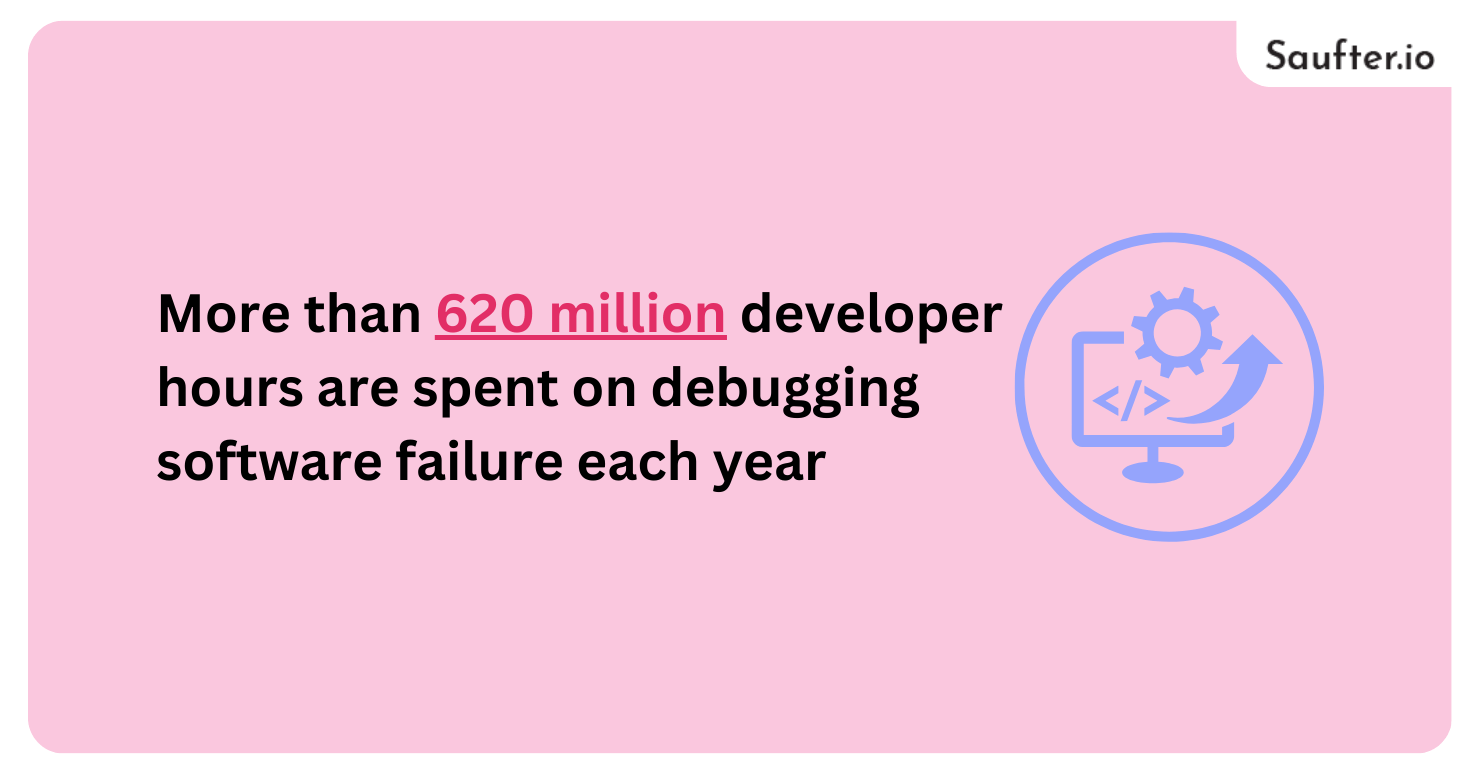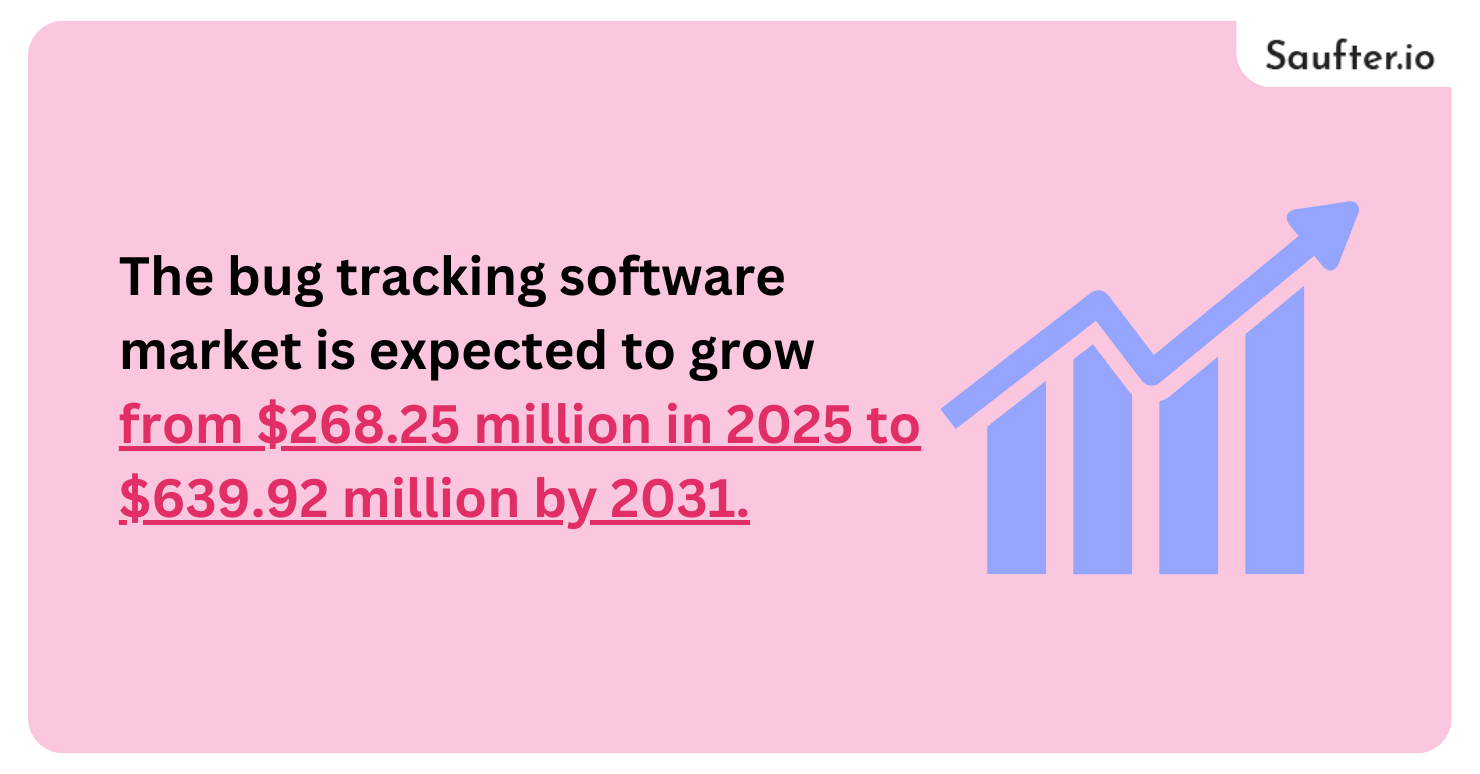Last Updated: January 2026
When managing software development projects, finding the right Mantis alternatives for bug tracking is crucial to ensure smooth workflows and timely issue resolution. Mantis Bug Tracker, one of the popular open-source options, has been a go-to for many developers for years.
However, software projects are experiencing an average of 15 to 50 bugs per 1000 lines of code. That’s why many developers and organizations are exploring alternatives to Mantis.
In this article, we’ll dive into some of the best Mantis Bug Tracker alternatives and competitors, helping you find the right tool for your project’s unique needs.
What is The Mantis Bug Tracker?
Mantis Bug Tracker is comprehensive open-source web-based software designed to help developers efficiently track and manage project-related bugs and issues. This feature-rich platform offers advanced facilities like workflow customization and user roles. It also offers some smart features like email notifications, time tracking of the bug, and notifications for changes in history.
It integrates with version control systems and other tools, supports plug-ins for extended functionality, and provides a simple, user-friendly interface for both developers and non-developers. Mantis is known for its ease of use and flexibility.
List of Top Mantis Alternatives

Do you know, that more than 620 million developer hours are spent on debugging software failure each year? So, the requirement for a good and powerful bug-tracking system is unavoidable.
Yes, Mantis is indeed a perfectly dependable open-source tool, but other platforms have far fancier features, tighter integrations, and nicer UIs. So in this article, we will look at the best Mantis Alternatives that can simplify your bug tracking process.
1. Redmine

Ratings:4.0/5⭐
Pricing: Free, Open source software
Redmine is one of the best free bug tracking software, that is being widely used by developers worldwide for project management and issue tracking. This is an easy-to-use tool built using the Ruby and Rails framework.
The platform allows flexible workflows with its features like multiple project management support, and role-based access control. It is designed to enable development teams to track, prioritize, and resolve issues efficiently.
The software can be seamlessly integrated with various source control management tools like Git and SVN, which makes things easier. Tracking and managing bugs becomes easier with its advanced features like time tracking, custom fields, Gantt charts, and email notifications.
Additionally, it also supports plugin integration, which makes it highly customizable for smoother workflow.
2. Fossil

Ratings:3.5/5⭐
Pricing: Free, Open source software
Fossil is a widely used software configuration management system that integrates various project management tools such as bug tracking, a wiki, and forums. Users can easily track, report, and manage bugs using its advanced bug-tracking feature.
The platform can be a suitable project management tool for you with its simple and intuitive web interface, advanced collaboration tools, and self-hoasting property. It uses SQLite ensuring consistency in usability even during crashes.
This is a great platform for teams searching for a lightweight and all-in-one solution for project management.
3. Taiga

Ratings:4.3/5⭐
Pricing: Free open source software, Premium plan at $70/month
Taiga is an open-source project management issue tracking platform designed for agile teams with extensive customization options. The platform supports various methodologies like Scrum and Kanban.
Its integrated bug tracking system allows users to track and resolve issues by type, priority, and severity using its comprehensive search and filter functionalities. Taiga facilitates its users with a smoother workflow by allowing them to promote bugs to user stories and link them to sprints.
This is a feature-loaded platform that helps developer teams to manage bugs and issues efficiently throughout the project lifecycle.
4. Request Tracker
![]()
Ratings:3.8/5⭐
Pricing: Free, Premium plan at $125/month
Request Tracker is an ideal solution for teams or organizations looking for simple bug-tracking software because of its highly customizable dashboard and comprehensive ticketing system. Teams can easily manage issues directly from their inbox or from its web interface.
The platform offers a number of convenient features such as automated workflows, bug reporting tools, and lifecycle management tools that help teams prioritize and resolve issues seamlessly.
5. Bugzilla

Ratings:3.9/5⭐
Pricing: Free, Open source software
Bugzilla is a free and open-source bug-tracking and project management software that offers many modern features like an advanced search option, categorization, and milestone tracking that help teams track, detect, and resolve software bugs effectively.
The platform is trusted by several major open-source projects like Mozilla, Apache, and Linux. It shows its adaptability and flexibility that complement various software development needs.
Bugzilla offers scalability to support both small and large teams. This is a nice and easy-to-use platform that enhances the productivity of the development team and improves the quality of the development.
6. OTRS

Ratings: 4.4/5⭐
Pricing: Customizable
The OTRS Community Edition is an open-source project management issue tracking software, that offers features like ticketing and bug tracking for users. Although it no longer receives updates or support, it remains a free option for basic service management needs.
For advanced features, OTRS encourages users to upgrade to the professional version, which includes additional tools, managed services, and enhanced security. The bug-tracking feature allows for efficient handling of reported issues, streamlining the resolution process.
7. Trac

Ratings: 3.0/5⭐
Pricing: Free, Open source software
Trac is an open-source project management tool that offers one of the best free bug tracking software embedded with its platform. It comes with a version control mechanism and offers a wiki for documentation and integration process.
Users can create tickets for bugs and track them easily using its features. It also allows customization in workflows, Ticket prioritization, and milestone management. With all these convenient features Trac becomes an ideal solution for teams looking for a comprehensive environment to collaborate and build.
The platform also offers seamless project tracking and progress visualization through reports and timelines.
8. WebIssues

Ratings: 4.0/5⭐
Pricing: Free, Open source software
WebIssues is an open-source platform for tracking and managing issues efficiently with team collaboration. It allows its users to add comments, and attach files to make things easier and workflow smoother.
The platform is easy to install and set up and allows wide customization. It offers several convenient features like search and filtering options, email notifications, and data export options.
The platform comes with both the web version and a desktop application that supports all operating systems. Additionally, WebIssues includes security management and OAuth authentication for enhanced email integration, making it versatile for tracking and managing tasks.
9. Open Project

Ratings: 3.8/5⭐
Pricing: Free, Paid plans start at $7.25/month
OpenProject is an open-source project management software that offers a powerful cloud based issue tracking system. It allows its users to track, report, and manage bugs efficiently and easily.
The platform allows smooth integration with other project management tools to enhance workflow and task management processes. This is an ideal solution for teams looking to boost their productivity with transparency.
10. Monday

Ratings: 4.7/5⭐
Pricing: Free up to 2 seats, Paid plans start at $9/month/seat
Monday.com is a work management platform designed to streamline workflows and enhance team collaboration. It features a comprehensive bug tracking tool that allows its users to track and manage bugs efficiently by detecting and logging bugs, assigning tasks for resolution, setting priorities, and tracking the progress of resolution.
The platform provides real-time updates for resolution and allows automation. It can be integrated with all popular development tools that enhance productivity and efficiency of development.
This makes it a useful platform for managing projects and ensuring smooth bug resolution processes.
Bug Tracking Tools in Software Testing

Defect management is a crucial aspect of bug tracking, which as we know plays an essential role in software testing. 41% of developers agree that getting a bug that reproduces is the biggest barrier to finding and fixing bugs faster.
These tools assist testers capture bugs with critical details like severity and reproduction steps. After that developers can automate the workflow to distribute bugs from one step in the cycle (e.g. filed) to another e.g. assigned > prioritized & fixed so they are resolved quickly on time as well with real-time collaboration, reporting, and analytics features, bug tracking tools allow for faster release times with higher software quality – not to mention helping you be better equipped at a later stage.
What is The Bug Tracking Methodology?
Steps to use a Bug tracking tool
- Projects: Categorize your bugs under different projects/categories to help in managing a variety of issues.
- Report Bugs: Each bug that you find should be documented with detailed explanations such as description, steps to reproduce, and severity level.
- Assign Tickets: Bugs are allocated to team members who should be solving these bugs.
- Prioritize: Classified gnats as major, and when so you focus on bugs better than others.
- Monitor: Follow the status, updates, and deadlines of each bug by a dashboard.
- Fix and Check: Test the resolution to make sure that it takes care of the issue, then mark your ticket as complete.
Saufter.io – The Best AI-Powered Chatbot Softwere

Saufter.io is a platform designed to help businesses enhance their customer engagement through AI-powered chatbots. The platform specializes in offering customizable chatbot solutions that can be easily integrated into websites, allowing businesses to automate customer interactions, handle inquiries efficiently, and provide 24/7 support.
Saufter.io emphasizes simplicity, with user-friendly features that don’t require coding knowledge. Its offerings include lead generation tools, personalized responses, and the ability to streamline customer support, making it an ideal solution for businesses looking to improve their website’s user experience.
Conclusion
In conclusion, while Mantis Bug Tracker remains a popular tool for many teams, the landscape of bug tracking is evolving rapidly, with alternatives offering more features and integrations. According to industry reports, the bug tracking software market is expected to grow from $268.25 million in 2025 to $639.92 million by 2031.

Platforms like Saufter.io provide innovative AI-driven support systems that go beyond bug tracking by integrating automated customer support, making it a valuable competitor for businesses seeking a comprehensive solution to manage bugs and enhance user experience efficiently.
















